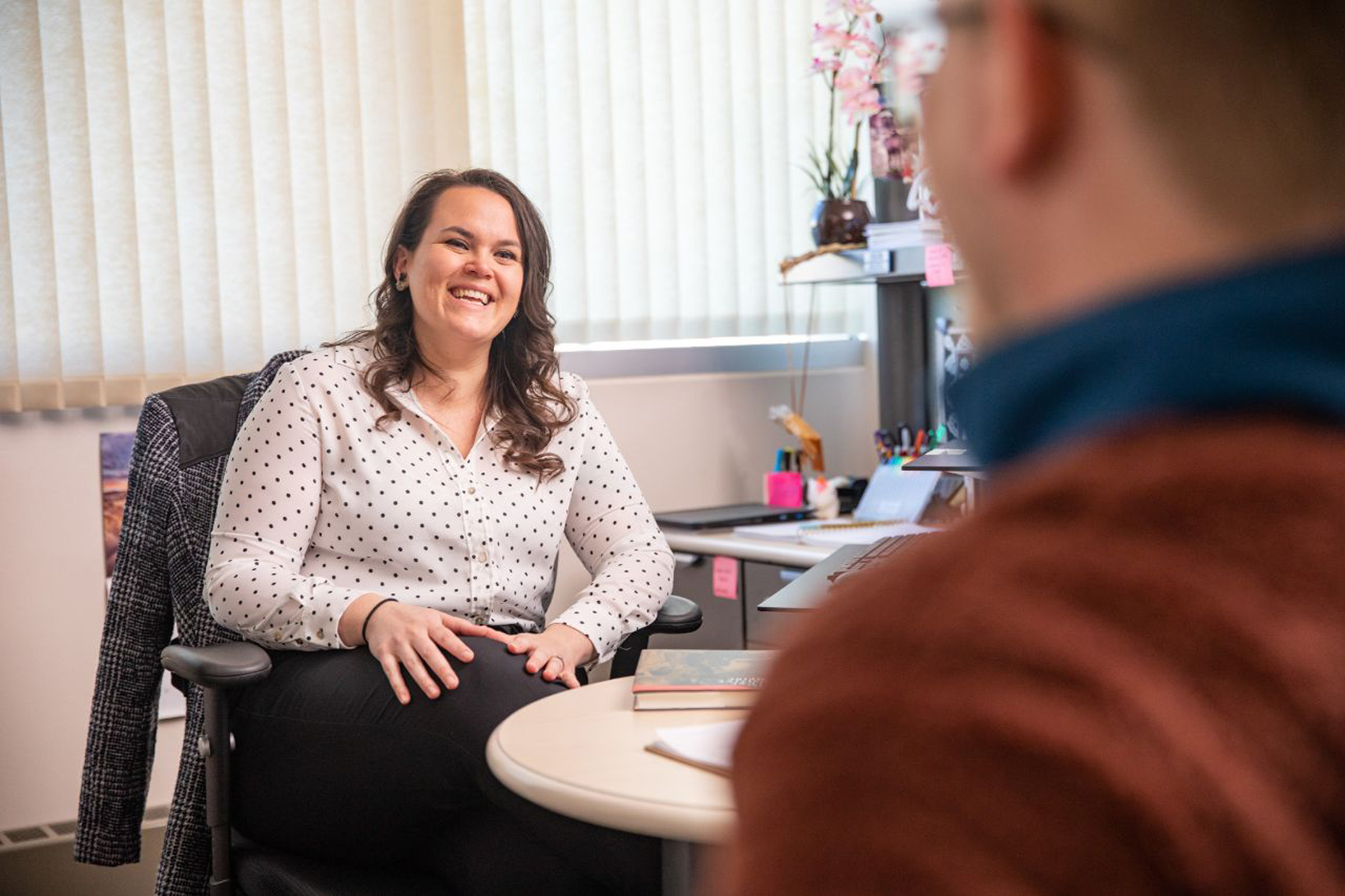Camplain receives NIH Career Development Award

Researcher will use first ‘K’ Award in Northern Arizona University history to study physical activity of people who are incarcerated in local detention facility
Ricky Camplain, an assistant professor in Center for Health Equity Research (CHER) and the Department of Health Sciences, was recently awarded a Career Development (K01) Award through the National Institute on Minority Health and Health Disparities (NIMHD), National Institutes of Health.
Camplain is the first researcher at Northern Arizona University to receive the prestigious K award. The five-year funding covers 75 percent of Camplain’s time, as well as funding to support her research project, at NAU and totals $653,159.
“We want to congratulate Dr. Camplain for receiving the first K-award at NAU for the research that she is doing through the Center for Health Equity Research,” said Regents’ Professor Julie A. Baldwin, director of CHER. “These awards are very competitive and coveted. This K01 will help Dr. Camplain achieve her goal of becoming an independent NIH-funded researcher and will make a significant contribution to the field of enhancing physical activity for individuals who are incarcerated. This award is so well deserved and we are extremely proud of her!”
The National Institutes of Health’s K awards provide support and release time for senior postdoctoral fellows or faculty-level candidates. Their objective is to prepare early-stage researchers for conducting their research and to assist them in becoming competitive for major grant support.
“I am extremely excited for Dr. Camplain,” said Roger Bounds, professor of Health Sciences and interim dean for The College of Health and Human Services. “This really is a big deal for her and also a big deal for NAU. Her current and future success will make a difference in society. Dr. Camplain’s success will also serve as a catalyst for future researchers at NAU. This really is something to celebrate.”
Camplain has four mentors for her program: Baldwin; Nicolette Teufel-Shone, associate director of CHER and professor in the Department of Health Sciences; Lynda Ransdell, dean of the College of Health and Human Services at Northern Illinois University; and Melanie Bell, a biostatistician at the University of Arizona.
“I wanted to apply for the K award because it provides an opportunity for protected research time to establish my own research lab at Northern Arizona University in the health promotion of correctional populations,” Camplain said. “K awards can also provide great opportunities to gather preliminary data for larger grants.”
Camplain’s K award project
Camplain will use her K award to build on her previous criminal justice and health equity research at CHER and a research project through Pilot Project Program funding with the Southwest Health Equity Research Collaborative. In that research, she and a variety of collaborators identified health disparities and successful approaches to promoting physical activity among incarcerated populations, especially at Coconino County Detention Facility (CCDF).
Along with collaborators Kelly Evenson, epidemiologist at the University of North Carolina at Chapel Hill, and Emily Wang, correctional health expert and internist at Yale University, Camplain’s goal with the study is to use the results to develop a community planned physical activity program that will increase the physical activity of individuals incarcerated in jail at CCDF that will ultimately enhance their health and wellbeing.
“Because K awards are great opportunities for career development and training, I hope to learn and develop new research skills in clinical trials, cluster randomized trials, and intervention development from my incredible mentor and collaborator team,” Camplain said. “I also hope to establish myself as an expert in health promotion among correctional populations.”
Through her previous work, Camplain and her collaborators have found that over the past 40 years, the U.S. has experienced an unparalleled epidemic of incarceration. More than nine million Americans are incarcerated in jail, facilities housing individuals awaiting trial, or serving short sentences each year. Of these individuals, 60 percent are racial or ethnic minorities and are from socioeconomic disadvantaged populations.
Among individuals incarcerated in a rural, county jail, they found that there are high rates of anxiety, hypertension, and poor sleep quality while incarcerated, but that physical activity can mitigate these outcomes and be immediate.
Through their research, Camplain and her colleagues found that a single bout of moderate-to-vigorous physical activity improves anxiety symptoms, decreases blood pressure, and improves sleep on the day it is performed. Despite these benefits, more than 75 percent of individuals incarcerated in jail do not attend recreation time, or rec-time, a structured time dedicated for exercise.
Camplain and her research team theorize that individuals who go through their program will have higher rec-time attendance, physical activity levels, self-efficacy, expectations and values of physical activity, sleep quality, as well as lower stress, anxiety, and depression symptoms.